Who’s in Prison and What’s the Purpose of Imprisonment? A Survey of Public Knowledge and Attitudes
The Sentencing Academy has published a new report, authored by Julian V. Roberts, Lilly Crellin, Jonathan Bild and Jade Mouton, that examines public knowledge of, and attitudes to, imprisonment. The report is based on a survey of 1,871 adults living in England and Wales. Read the full report here: Who’s in Prison and What’s the […]
Children’s Knowledge and Opinion of Sentencing

The Sentencing Academy has published a new report, authored by Professor Kathryn Hollingsworth, Dr Jonathan Bild and Professor Gavin Dingwall, that explores what children above the above of criminal responsibility know and think about sentencing. The report is based on the findings of a survey of 1,038 children living in England and Wales aged between […]
Coercive Control as Mitigation at Sentencing

By Professor Vanessa Bettinson Read the full paper here: Coercive Control as Mitigation at Sentencing Executive Summary: • Coercive control is a recognised form of domestic abuse under section 1 of the Domestic Abuse Act 2021 and it is a criminal offence to engage in controlling or coercive behaviour in an intimate or family relationship […]
Sentencing for Murder: A Review of Policy and Practice

By Dr Richard Martin Read the full paper here: Sentencing for Murder – A Review of Policy and Practice Executive Summary: • The only sentence a court can pass for murder is life imprisonment. The mandatory life sentence is comprised of three elements: the minimum term spent in prison (handed down by the sentencing court); […]
Victim Personal Statements: A Review of Recent Research and Developments

By Freya Rock Read the full report here: Victim Personal Statements: A Review of Recent Research and Developments Executive Summary: A Victim Personal Statement (VPS) is submitted by the victim of a crime to the sentencing court to document the physical, emotional, financial, or other impact of the crime. Victim impact statements have become a […]
Parole in England and Wales: Recent Reforms and Proposals for the Future

Authors: Gavin Dingwall and Megan Millar This report examines recent changes to parole in England and Wales and considers proposals for the future. It also explores a number of areas of research that would benefit from greater attention to ensure that future reforms are underpinned by the best possible evidence. Read the full […]
Sentencing Trends in England and Wales (2002-2022)

A new analysis of sentencing trends between 2002 and 2022 has been conducted by the Sentencing Academy. This bulletin, which is the first in a series, documents changes in sentencing severity during this period and finds that whilst the use of custody and the average custodial sentence length has declined for summary offences, both have […]
Desistance and Sentencing: A Review of Research
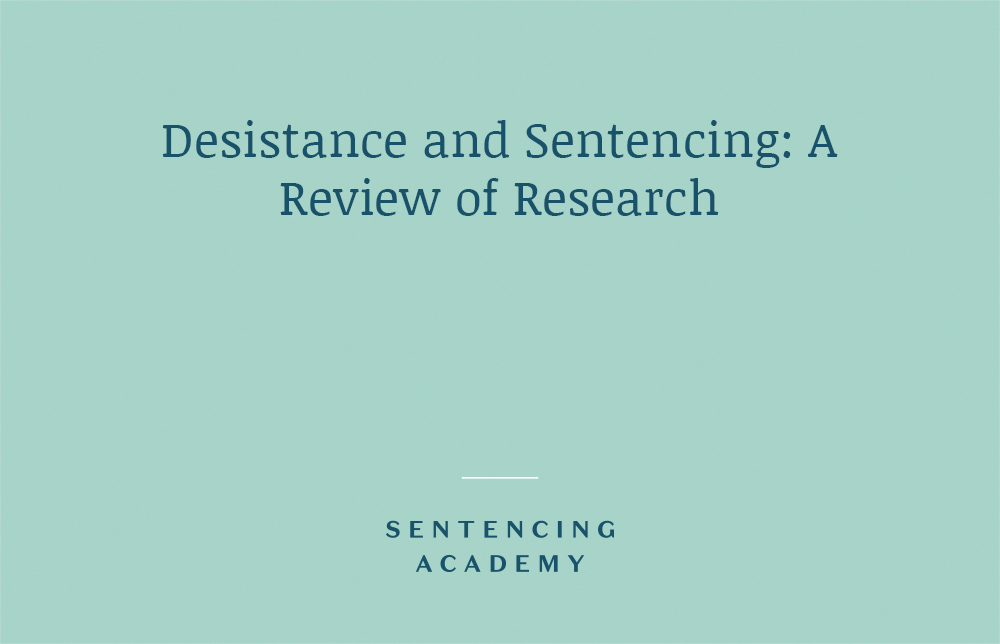
By Dr Annie Bunce • Desistance is the cessation of offending by those with previous patterns of criminal behaviour. Desistance is a gradual, non-linear process, not simply a one-off event. This paper reviews research on the desistance process and considers the implications of key findings for the sentencing process. • Research into offending […]
Knife Crime Prevention Orders: A Review of Associated Practical Issues
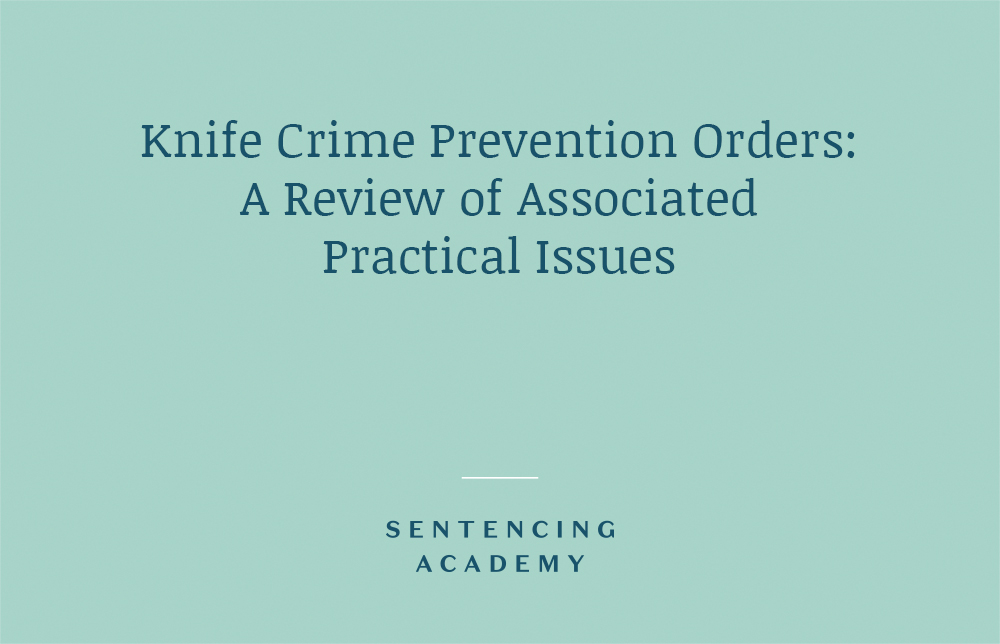
The Sentencing Academy has published a new paper by our Kalisher Trust intern, Georgia-Mae Chung, exploring the practical issues arising from the implementation of Knife Crime Prevention Orders (KCPOs). The key issues identified in this paper are: – Uncertainty about their usefulness and whether they fulfil their purpose. – The low threshold for implementation […]
Fines: A review of the sanction, its use and operation, and research evidence
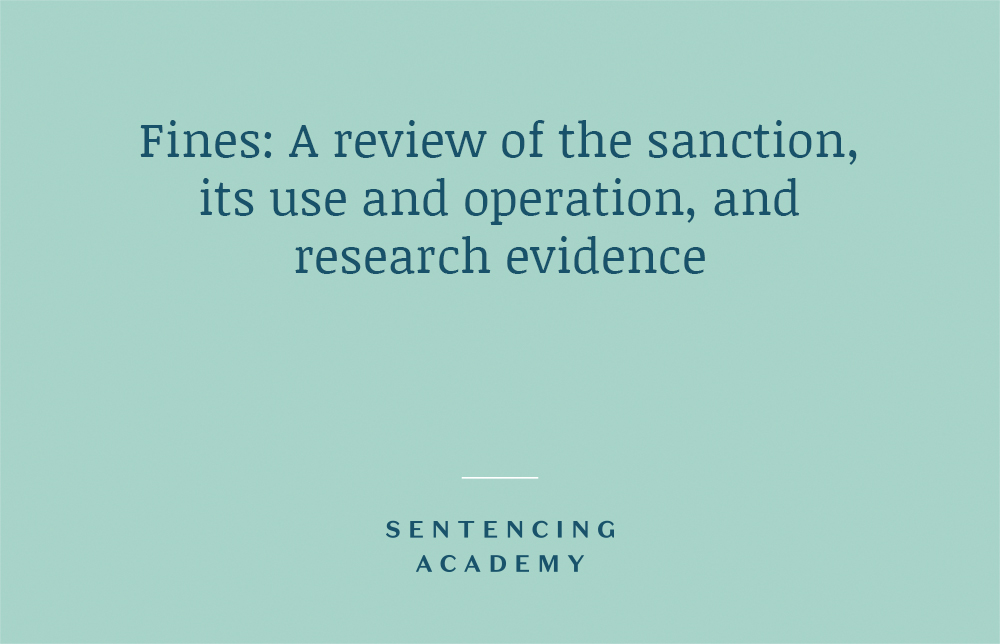
By Dr Jay Gormley • Criminal fines are the most common criminal sanction and account for about 75% of principal sanctions issued by courts. As a principal sanction, fines are most commonly used for relatively less serious offences where an out of court disposal (OOCD) or discharge is not appropriate or possible. However, fines can […]
Sentencing Historic Offenders: September 2022
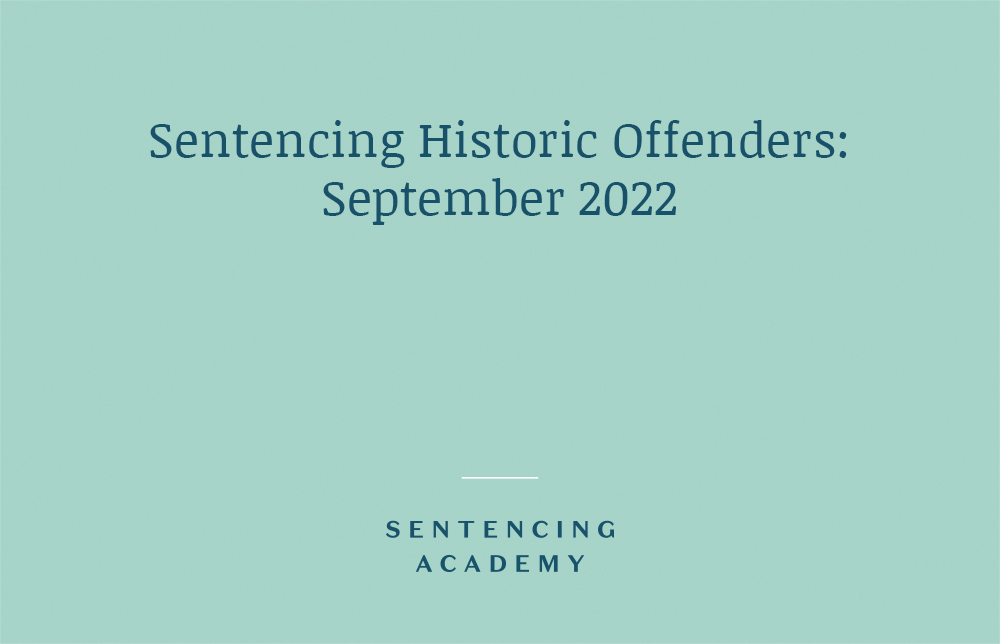
By Dr Gabrielle Watson This paper reviews approaches to the sentencing of non-recent or ‘historic’ offenders in England and Wales. These include – but are not limited to – late prosecutions for historic sexual offending which have dominated the media in recent years. • The sentencing of historic offenders is a notoriously difficult task, […]
Deferred Sentencing: A review of practice: September 2022
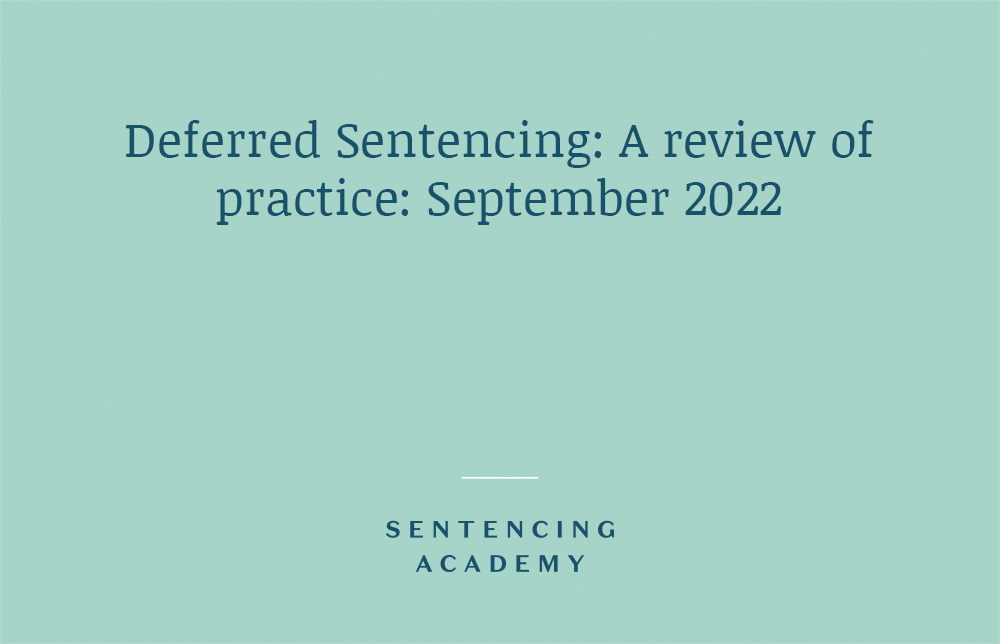
Author: Dr Elaine Freer Deferred sentences are available to any judge or bench of magistrates sentencing a defendant in the magistrates’ court or Crown Court. They have been available in England and Wales since the Criminal Justice Act 1972. They are currently found in section 3 of the Sentencing Act 2020. They allow […]




